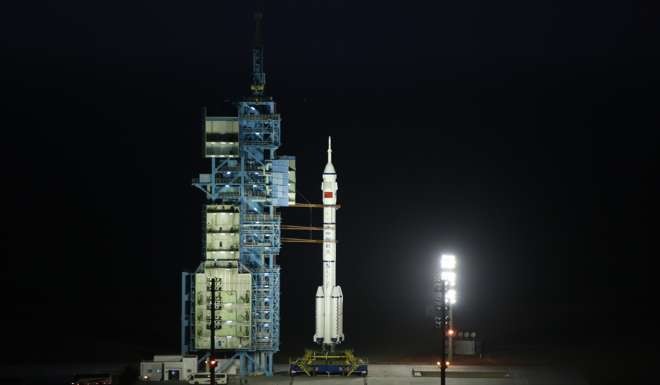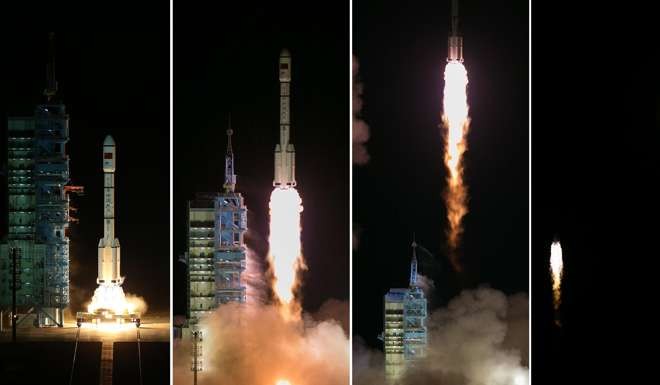
Chinese astronauts set for lift-off as manned missions resume
Shenzhou-11 spacecraft to blast off from Gobi Desert launch pad and dock with Tiangong 2 laboratory
A two-time veteran astronaut will head China’s longest manned space mission yet when the Shenzhou-11 spacecraft lifts off on Monday as part of a bigger programme to build a space station.
A Long March-2F rocket would blast off with the spacecraft from the Jiuquan Satellite Launch Centre on the edge of the Gobi Desert at about 7.30am, state-run Xinhua quoted Wu Ping, mission spokeswoman and deputy director of the manned space engineering office, as saying on Sunday.

It is the country’s first manned space mission in more than three years – the Shenzhou-10 was launched in early 2013.
Wu said Major General Jing Haipeng would lead the 33-day mission, and be accompanied by Colonel Chen Dong.
Jing’s previous space flights were on the Shenzhou-7 mission in September 2008 and the Shenzhou-9 in March 2012, Xinhua reported.
Jing and Chen will dock within two days with the Tiangong-2 space laboratory, which was sent into orbit last month.

The two astronauts will stay aloft twice as long as the previous crew on the Tiangong-1 to conduct a series of pharmaceutical, physics and biology experiments.
Of the 40 studies the pair will carry out, three come from the winners of a space-science contest for
The job is challenging, risky and dangerous but there is nothing else I would rather do
Hong Kong secondary schools last year. The Hong Kong middle school students involved in the winning projects will be at the launch centre in Inner Mongolia to see the lift-off.
The two astronauts were reportedly in good shape and spirits on the eve of the mission.
“The job is challenging, risky and dangerous but there is nothing else I would rather do,” China Youth Daily quoted Jing, 49, as saying.
Jing would turn 50 while in orbit, the report said.
“[For this mission] we have improved our ability to deal with emergencies, first aid and space experiments,” Jing said.
This would be Chen’s first space flight, Xinhua reported.
I will treasure every moment in space and ensure I record my experience
“I will treasure every moment in space and ensure I record my experience in my diary and enjoy the out-of-this-world view,” he was quoted as saying.
Chen is an experienced air force pilot and was among a second intake of Chinese astronauts in May 2010.
The Tiangong 2 is a prototype for the country’s planned permanent space station, which it hopes to have in orbit in 2022, two years before the International Space Station goes out of service. It would leave China as the only country with a permanent space presence then.

